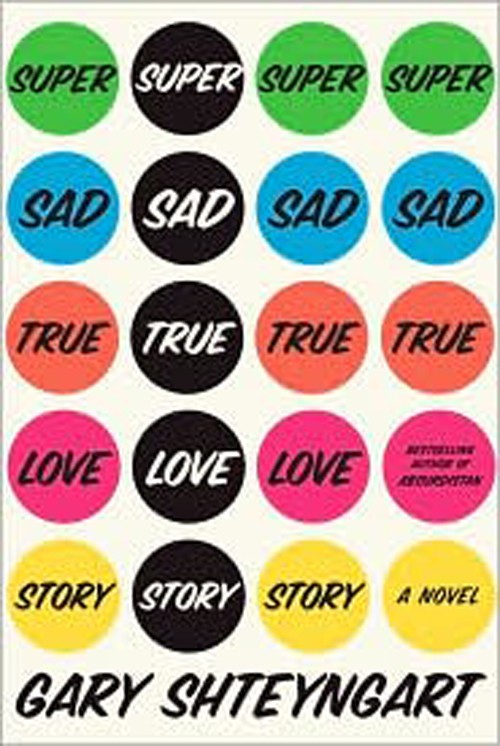Gary Shteyngart’s “”Super Sad True Love Story”” manages to spin a yarn that seems rare these days.
How do you uncover secrets about a society dying to expose itself to the entire world?
“”Super Sad True Love Story”” follows the life of Lenny Abramov, an aging but successful consultant living in a near-future America, working to market scientific treatments to immortalize the rich and powerful. But in the process of doing so, his own mortality tortures him and changes his whole life into a tragic unraveling toward his death.
But it’s not all depressing — in the process, Lenny falls in love with a beautiful younger woman, Eunice Park, although his relationship serves as a constant reminder of just how old he’s getting.
A love drama couched in science fiction, “”Super Sad True Love Story”” paints a poignant scene of a future completely controlled by technology.
Though the plot hinges on cliché, the humorous, witty techno-speak, and the outrageous cultural practices that are just removed enough from our own, charm the reader into accepting the commonality of it all. Lenny’s dramatic archetypal Jewishness, Eunice’s frustratingly static bitchiness and the quiet, creepy villain in the corner.
Shteyngart re-tools the same strategies that previous novelists used to speak to a generation of frustrated, misunderstood dystopians.
“”Super Sad True Love Story”” might seem as cliché as its title, but through relentless pacing, this love story drenched in a man versus society plot arc is so well greased, it leaves the reader willfully, even blissfully engaged.
The story itself is written in a series of vignettes, through mock instant messages and diary entries from Lenny, Eunice and their contacts. It’s almost like reading someone else’s text messages.
Though at times disgusting, at times heartwrenching and at times absolutely hilarious, “”Super Sad True Love Story”” is a novel that’s somehow relevant, dark, beautiful, universal and staggeringly frightening all at once.
Sure, it’s been done — literaries coming to terms with life and death, love and hate, the struggle for connection — but we live in a modern age where those authors are increasingly forgotten. Shteyngart retells the story for us.









